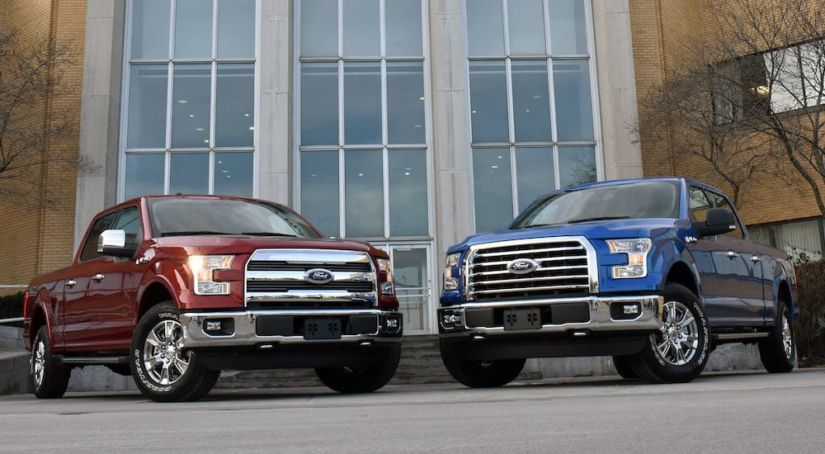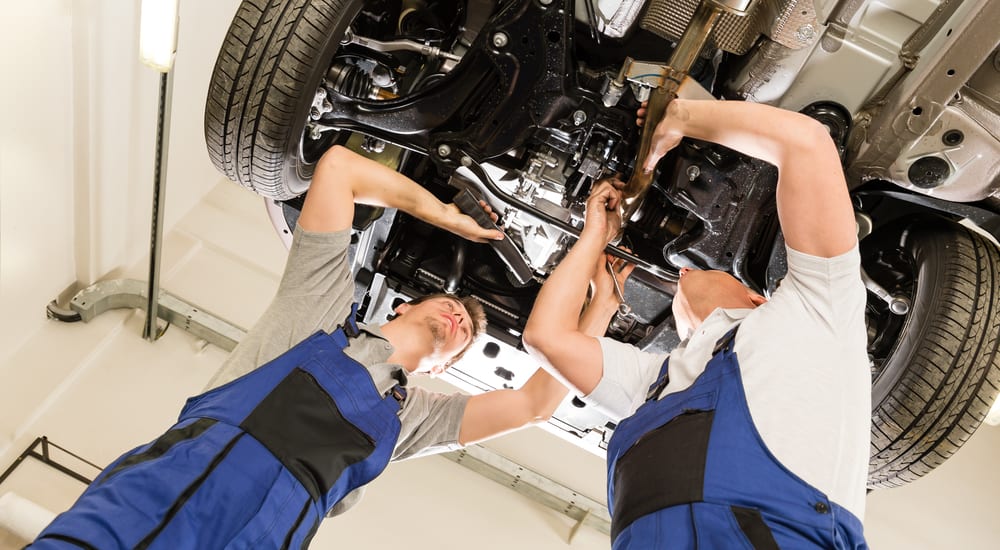Whether you are looking to buy a used Ford truck or any other model and manufacturer, there are some things you should keep in mind before making a purchase. I know it can be a pain to keep track of so much information and try to find out everything there is to know, but the more work you do before making a purchase the less hassle you’re likely to have afterward. Think of it this way: would you rather spend a couple hours before buying a truck doing a little research or spend 4 days and a few thousand dollars getting something repaired?
The good news is that a lot of this isn’t particularly difficult, and some of it certainly falls under the category of common sense. Personally, I would rather have someone give me some advice that I already know than miss out on useful information simply because a friend figured I already knew it and didn’t mention it. So even if you know some of these things, a refresher is always useful, and anything that can save you some money is good.
1. Start Your Search Online
Back in the day you might have started your search for a used Ford truck or another vehicle by looking in a newspaper, local auto-trader magazine, or just going to a car lot. Now, however, the internet is an absolutely indispensable part of the car-buying process, especially if you are interested in a used vehicle. It has basically replaced all those previous steps, other than actually going to the lot, but even then you should start online.
If you don’t know exactly what type of vehicle you want, then there are hundreds of articles and blog posts you can read online with details about different models and manufacturers. Even posts comparing similar models so you can see what each has to offer. These kinds of things are great resources that can help concentrate several other pages worth of information down into a neat read that is easy to get through and find useful information.
Even if you know what you’re looking for, the internet still has endless resources available to you. Do you know the difference between last year’s model and this one? Or how about different trim levels between the same model? Or even what a “trim level” is to begin with? All of these things can be found online and save you a lot of time later – and your time is valuable.
2. Private Sellers vs. Dealerships
Entire articles can be written just on the benefits and drawbacks of private sellers and dealerships, but there are a few things you should definitely know. A private seller is an individual who is selling a car or truck that he or she has owned for a while. You never really know what the condition of this type of vehicle will be since there’s no telling what the owner has done with it during the time he or she has owned it. You will usually pay the least possible amount for a used truck when buying it from a private seller, and you may be able to haggle or negotiate on the price quite a bit. The dangers, however, are that you could buy a truck that is in much worse shape than you realize, and you have no warranty or other protection for your investment.
A dealership, on the other hand, is a business that specializes in one thing: selling cars, trucks, and SUVs. These days, most dealers offer both brand new and used or pre-owned trucks for sale. You will typically pay more at a dealership for a used Ford truck than you might if you found the same vehicle from a private seller, and dealerships are likely to have more recent used models rather than much older ones. The upside to a dealer, however, is that many of them do offer warranties and other purchase protection, especially if you are looking at a certified pre-owned vehicle.
3. Pros and Cons of the Vehicle History Report
If you watch TV, listen to the radio, or breathe air, then you’ve probably heard of vehicle history report services. There are a few major ones available and their commercials push the idea that you should look up any used truck on their service before you make a purchase. That’s not bad advice, but you should know a few things when you check such a report.
First and foremost, the biggest flaw of these services is that they only provide you with information that has been reported to them. They don’t employ private investigators or inspectors to go door-to-door and inspect every vehicle in the country. Instead, they rely on accident reports and other documents offered by the owners of vehicles to build the history of that vehicle. In other words, avoiding negative information on one of these services is as easy as just not reporting it.
The upside, however, is that most of these services are quite good at doing what they do. They are pretty thorough and can certainly warn you about something you might otherwise miss when first looking at a used truck – especially when it’s sold by a private seller. The rule to remember is this: negative things on such a report are a red flag, but a lack of negative results does not mean everything is fine, just that nothing has been reported.
4. Make Sure a Mechanic Looks at It
Before you buy any used truck, Ford or otherwise, be sure a mechanic has had a good look at it and checked its basic mechanical systems. If you are buying from a dealership then they probably have mechanics on site who do such inspections. In fact, dealers are required by law to provide certain information about the vehicle and indicate any potential issues they discover.
When dealing with a private seller, always get them to agree to an inspection by a 3rd-party mechanic before making a purchase. If they are unwilling to do this, then that is a red flag that should immediately warn you away from the sale. You will probably have to pay for this yourself, but if you really want the vehicle, this precaution can more than pay for itself in the long run.
5. Ask Questions
This may seem silly, but it is one of the most important things you can do. When looking at any vehicle be sure to ask questions throughout every step of the process. If you call a car lot looking for a model listed on their website, have some questions in mind to ask and get concrete answers before you visit. When someone doesn’t know an answer but makes an effort to find out, that’s great – but if they can’t answer pretty simple questions and refuse to find an answer, then that’s a big problem.
If you are dealing with a private seller or you’re at a lot talking to a salesperson, ask more questions. Ask about mileage, about mechanical systems and any issues, if it has been in any accidents, about how long the owner has had it and how often they drove it. If you’re unsure of the kind of transmission in a used Ford truck or about whether it’s all-wheel drive or two-wheel drive, just ask. The more you know the more convinced you can be in the security of your purchase.




